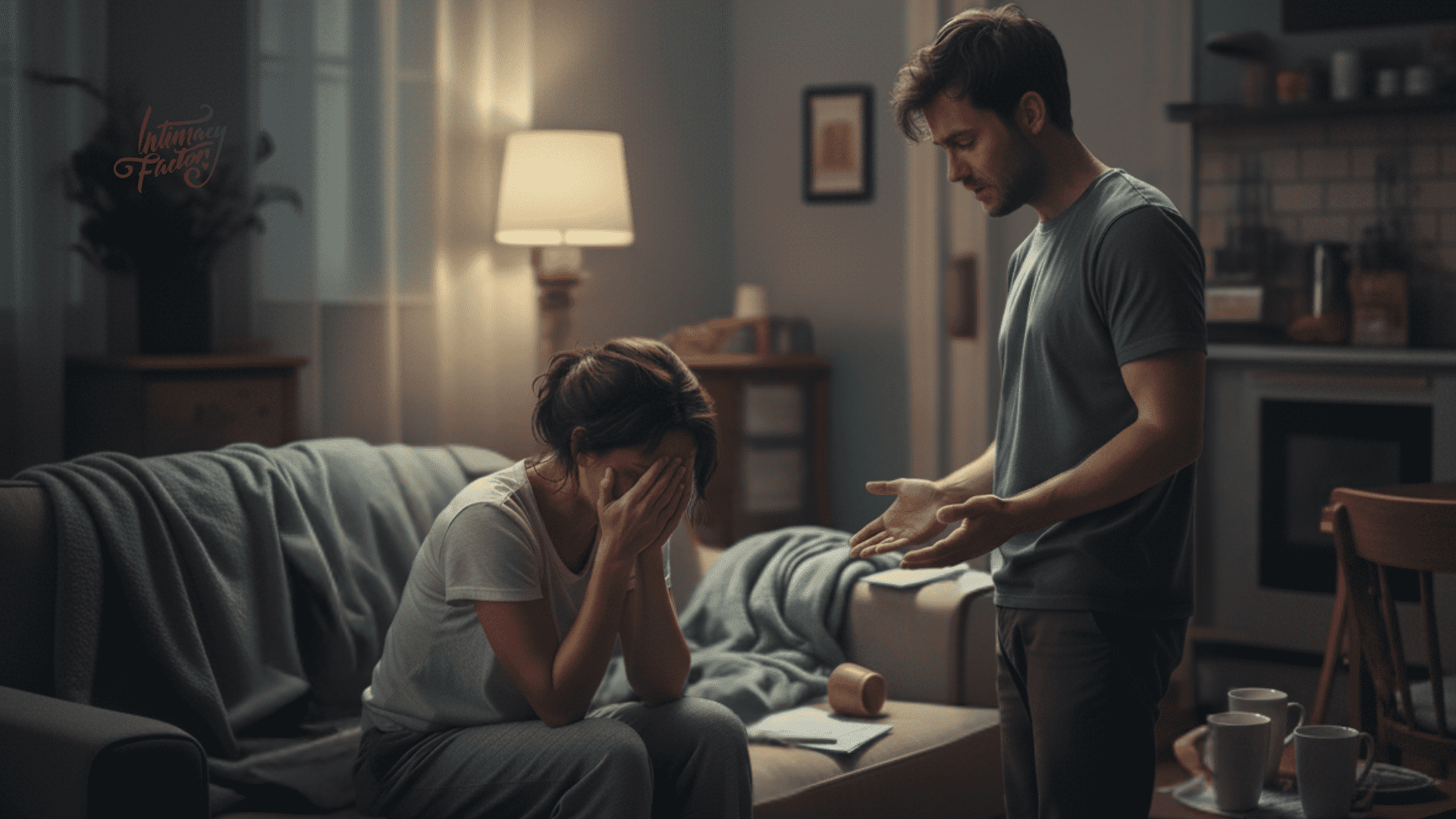When Sorry Becomes a Cycle: How to Stop Repeating the Pain

Apologies are supposed to be healing. They are meant to bridge the gap after hurt, to repair what was broken, and to show that the relationship matters more than pride. In a healthy connection, “I’m sorry” signals accountability and a genuine desire to do better. But what happens when those words stop carrying weight? What happens when apologies turn into a cycle that repeats the same story. Hurt, regret, forgiveness, then back to hurt again?
This cycle is one of the most common but also the most dangerous patterns in toxic relationships. It keeps people stuck because it feels like progress on the surface, when in reality, nothing changes underneath. You forgive because you hope the apology means things will finally be different. You want to believe that this time the pain will not repeat. But soon enough, you find yourself back in the same place, hearing the same words, wondering why things never improve.
When Apologies Lose Their Power
In the beginning, apologies feel like healing. They soothe the sting of conflict, they reassure you that your pain is seen, and they spark hope that the relationship can move forward. But over time, when the same hurtful behaviors continue, apologies lose their power. They become less about accountability and more about buying time.
You begin to notice a pattern. Arguments end the same way. Tears are followed by remorse, promises, and sometimes even grand gestures. For a while, you feel relief, maybe even closeness. But then it happens again. The same disrespect, the same broken boundaries, the same disappointment.
What is most damaging is not just the repetition itself, but the way it confuses your sense of reality. You start to wonder if you are expecting too much, if you are the one who should toughen up. When someone tells you “sorry” enough times, even without change, it creates the illusion of accountability. And that illusion is powerful enough to keep you holding on.
The Emotional Cost of the Cycle
Living in the cycle of hurt and apology takes a quiet but steady toll. It wears away at your self-esteem because each repeated apology reinforces the idea that your needs are negotiable. You begin to internalize the belief that being hurt is part of love, that forgiveness must always outweigh self-protection.
Over time, the cycle conditions you to accept less than you deserve. The highs of reconciliation keep you invested, while the lows chip away at your sense of safety. This push and pull creates what psychologists call intermittent reinforcement, the same mechanism that makes gambling addictive. The unpredictability of when things will be good again keeps you tied to the relationship, even though the pain outweighs the peace.
You may notice yourself making excuses for the other person, telling friends and family that they are trying, that things are better, that you just need more patience. But deep down, you know the truth. If words were enough, you would not be living the same argument on repeat.
Why It’s Hard to Break Free
If the cycle is so painful, why do so many people stay? The answer is layered. Part of it is hope. Hope that this time will finally be different. Hope that love will be enough to change the pattern. Hope that the apology is genuine, even if the actions don’t match.
There is also fear. Fear of being alone, fear of starting over, fear that maybe this is the best love you will find. And sometimes, fear of confirming what you already suspect, that the person you love may never change.
The cycle also thrives on the moments of relief that follow the apology. Those reconciliations can feel tender and loving, reminding you of why you fell in love in the first place. They keep you invested, convincing you that the relationship is worth the struggle. But as comforting as those moments feel, they are only temporary pauses in the larger pattern.
Breaking the Cycle
Breaking free from this cycle does not start with the other person. It starts with you. It begins by redefining what you are willing to accept as love. Love is not about being repeatedly wounded and repeatedly soothed. Love is not about constantly forgiving the same pain. Real love is about growth, respect, and the safety of knowing that harm is not a pattern.
To break the cycle, you must see apologies for what they are: not proof of change, but only the beginning of it. True change is not in words but in consistent actions over time. If those actions never arrive, the apology is incomplete.
This is where boundaries become essential. Boundaries are not ultimatums or punishments. They are your way of honoring yourself, of saying that your heart deserves more than repeated disappointment. When you communicate a boundary, you are not asking for too much. You are simply protecting the love you have for yourself.
Sometimes, despite your best efforts, the cycle continues. And when it does, the choice becomes clear: stay in the repetition, or choose healing over habit. Walking away is never easy. It often feels like tearing away a part of yourself. But what you gain in return is priceless. You gain clarity, peace, and the space to rebuild trust in yourself.
Choosing Healing Over Habit
In the end, the cycle of “hurt, apologize, repeat” thrives on your willingness to stay in it. It cannot continue without your participation. Choosing healing means choosing to step out of the loop, even when it feels easier to stay.
It means recognizing that love is not meant to keep breaking you. That apologies without change are just words. That you deserve consistency, safety, and respect in your relationships.
When you choose healing over habit, you reclaim your power. You stop waiting for apologies that never lead to change. You stop confusing temporary comfort with real connection. And you open yourself to the kind of love that does not need to say “sorry” over and over, because it does not keep repeating the same hurt.
The cycle can end. But it begins with you choosing to step out of it.
Also Read:
Silent Punishment: The Relationship Red Flag You Can’t Ignore
Just so you know: Some links on this blog are affiliate links. If you choose to make a purchase through them, I might earn a small commission, and it won't cost you anything extra. Your support makes a big difference and helps me continue to bring you valuable content.

I write about the unexpected, beautiful, and sometimes painful sides of love, dating, romance, breakups, intimacy, marriage, and everything in between. My goal? To help you spot the toxic, protect your peace, and never forget your worth.



